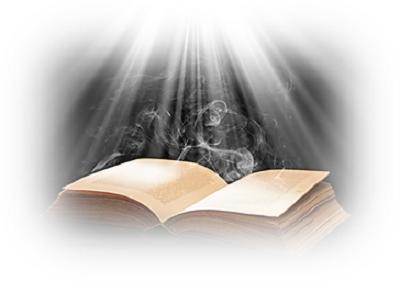The Great Awakening: History
The Great Awakening: History

"Sinners in the-hands of an angry God." Nearly everybody can recall that title from high school American literature class. But Jonathan Edwards' famous sermon on the terrors of hell and the mercy of God is part of a movement that many American historians have considered the most important event of any kind in the stamping of the nation's identity and character.
Just three decades before the War of Independence, Edwards, a shy and retiring minister with poor speaking skills, came to believe that much of New England, the very citadel of Calvinism in the past, had become not only Arminian but outright pagan. Arminian churches, once founded on Reformed principles, had now slipped even further into Unitarianism and infidelity. Even Harvard had fallen to the Arminians who then became Unitarians and Yale, though officially Calvinistic, was actually quite secular and unconcerned with spiritual questions. It seemed that even where orthodoxy prevailed on paper, in churches and institutions committed to creeds and confessions, there was very little of the experience of God's grace that so characterized the biblical characters and the lives of the reformers. As long as one nodded at the right moments, and gave approval to the basic orthodox tenets, nothing else was expected. At least this is how men like Edwards saw things.
So, Edwards began to preach a series of sermons on "God's free justification of sinners." Edwards states that the young people were particularly disinterested in religion and were inclined to find worldly entertainments more fascinating. As a result of the Spirit's use of these sermons, awakening suddenly broke out and the young people especially were converted in large numbers. The evangelist, deeply impressed with the results in his own congregation, vowed never to stray from this message.
Furthermore, Edwards said that "No discourses had been more remarkably blessed than those in which the doctrine of God's absolute sovereignty with regard to the salvation of sinners ... were insisted upon." In one such sermon, for instance, Edwards, in great detail, warned the congregation not to presume either on God's own righteousness. For apart from faith in Christ, he warned them, God is perfectly just in sending every religious person to hell and the only thing that, at any moment, keeps anyone out of hell is the mercy of a God who is not bound to save but freely saves according to his own good pleasure.
Edwards was joined by the Tennent brothers and eventually by the Anglican evangelist George Whitefield. But the Great Awakening drew mixed reviews. First, it raised concerns among the orthodox clergy who worried that the emotion sometimes displayed in the meetings might distract attention from the preaching. Men and women would often be so overcome with despair at the preaching of the Law and joy at the preaching of the Gospel that passions were raised. Now, mind you, this isn't a "laughing, barking, clapping" thing. These were stiff 18th century New England WASPS and the slightest show of emotion — a sigh, a nod of the head, an outburst of joy at hearing the good news of justification, would have been socially indecorous.

The evangelists were also accused by the orthodox of dividing the Word from the Spirit. You see, the evangelists said that there were many parishes where the Word was being rightly preached and the sacraments were rightly administered. There was even a proper use of church discipline. But, they charged, the Spirit was not there. It was dead, cold and formal in spite of the presence of Word and sacrament. Now remember, not only were these evangelists Calvinists on paper; they were opposing Arminianism as the very root of secularism. And yet, the orthodox Calvinists who opposed the Awakening did have a point here. In both Lutheran and Reformed theology, the Word and Spirit are so closely connected that one cannot say that a church has the Word and the sacraments, but not the Spirit. Perhaps a church could claim to be rightly preaching the Word and administering the sacraments, but if it is cold and dead, lacking the Holy Spirit, it cannot in truth be offering the Word of Life. God always works through his Word, the orthodox insisted, when it is truly preached even by unconverted men.
In many ways, the Great Awakening was a blessing. A greater percentage of the American population actually came to a living faith in Christ than at any other period in our history. In terms of the population, it was far greater than all of the crusades of the 20th century rolled into one. Further, it was a recovery of solid, biblical and Reformation doctrine. Some decades after the Great Awakening, Joseph Tracy wrote, "Arminianism had so progressed as to cause alarm. Its advocates said that they were only explaining some of the doctrines of Calvinism more rationally and carefully than men had formerly done. Men had no interest in accepting a salvation by works outright, but would go half-way to Rome." While the orthodox criticized the evangelists for their tactics, John Wesley criticized them for their Calvinism. In fact, Wesley started America's first monthly magazine, The Arminian Monthly, and broke with his close friend and associate George Whitefield over the meaning of the Gospel itself. When Whitefield publicly preached on election and on justification in "The Lord Our Righteousness," Wesley accused him of preaching antinomian license. In America, the evangelists regarded Wesley as "a Jesuit in disguise." After the Great Awakening, the Second Great Awakening and the subsequent history of revivalism in America was to be controlled by the very Arminianism that the Great Awakening itself considered the greatest threat to Gospel Christianity. Tracy writes, "The safety of everything valuable, either in this world or the world to come, was felt to depend on the unimpaired maintenance of the doctrines of the Reformation."
In the Great Awakening, we also see a remarkable example of integrating things that all too often in our day are divided. For instance, the passion for the lost was linked to a commitment to learning. These evangelists of the Great Awakening founded Princeton, Dartmouth, Rutgers and similar institutions and the awakening at Yale was so strong that its president, himself a student of Edwards and an evangelist of the Great Awakening, concluded that whereas nearly every student had been unconverted, now nearly everyone had a saving interest in Jesus Christ. Further, there was a link between saving souls and saving bodies. The leaders of the Great Awakening were concerned about the plight of the Indians and the slaves and launched the first salvos in the war on slavery in America.
But the Great Awakening, at least from my point of view, also had some weaknesses that continue to haunt us to this very day. First, its critics did have a point when they considered the evangelists too unconcerned about the church and its institutional authority. The Great Awakening did open the door to the later sectarianism and free-for-all revivalism that characterizes modern evangelism. Second, they so emphasized experience and conversion that they often thought that evidences could be clearly discerned and here the orthodox had reason to worry as well. All repentant sinners who confess faith in Christ must be regarded as true brothers and sisters. Where in Scripture are we told to judge Christians by their experience? And how far removed was this conviction from the Wesleyan notion of a "second blessing," which later blossomed into the Pentecostal idea of a second work of grace that could be discerned by speaking in tongues?

Third, there is no question that just as the orthodox had for too long settled for barren formalism, the evangelists over-reacted by so stressing the Holy Spirit's work — even independent of the Word that the next generation, unfettered by Reformed beliefs, found it very easy to degenerate into fanaticism and enthusiasm of the most ridiculous and reproachable nature.
Conclusion⤒🔗
As the Great Awakening slowed in its progress, Edwards himself began to complain of a certain emotionalism that was beginning to overthrow genuine truth and piety. Edwards' own students at Yale and Princeton even began to publish works that rejected original sin and justification, preaching an Arminian rationalism that was more congenial both to the spirit of the Enlightenment and a "pull yourself up by your own bootstraps" democratic approach to religion. As the 19th century dawned, the descendants of the Great Awakening were now determined to generate the zeal and passion of this first Awakening while getting rid of the theology that drove it. From then on, revival would degenerate into revivalism. No longer viewed as the sovereign work of God related to the preaching of the Law and the Gospel, Charles Finney countered that it was simply "the philosophical result of the right use of techniques." Ever since, Americans have preferred technique, sentiment, and moralism and it was this shift that produced both the liberal and evangelical wings of American Protestantism. Whatever its weaknesses, the evangelists of the Great Awakening would stand with us today in condemning nearly everything in our day that passes for revival.

Add new comment